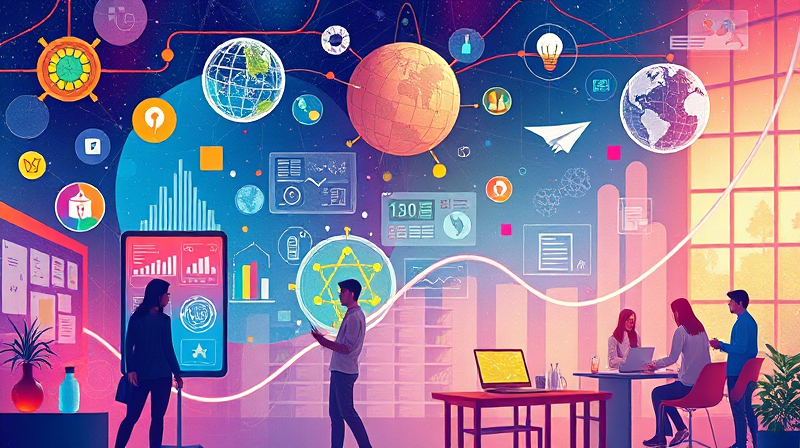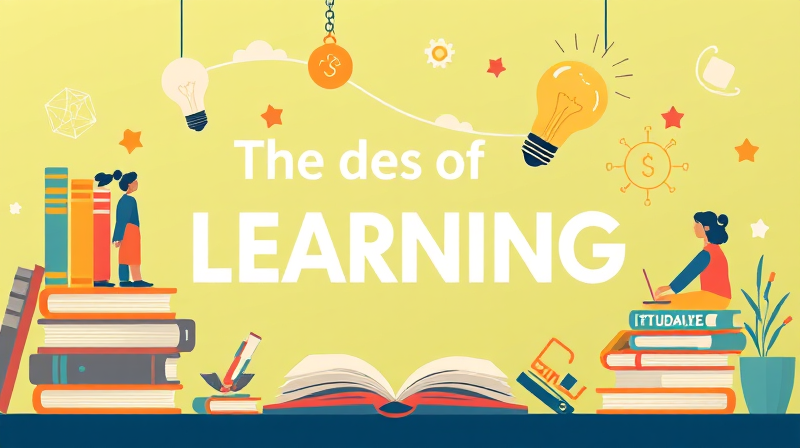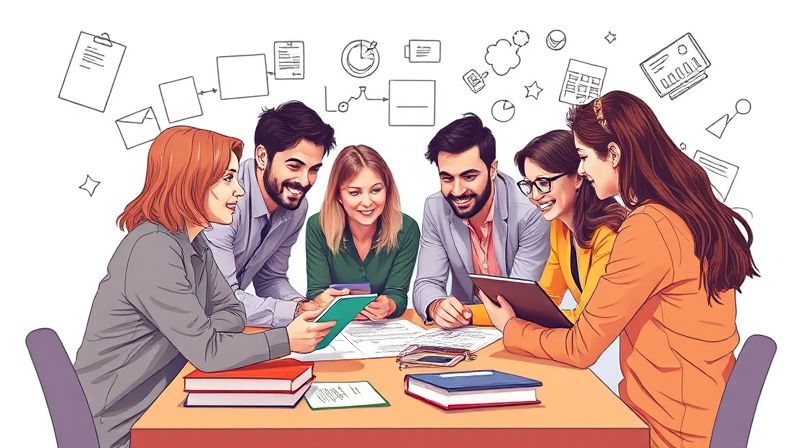In today's fast-paced world, the ability to learn independently and continually develop oneself is not just a desirable trait but a necessary one. As society moves closer to 2025 and beyond, independent learning is emerging as a cornerstone for personal and professional success. By taking charge of your own education, you empower yourself to evolve, adapt, and thrive in an ever-changing environment.
Independent learning is a dynamic process that goes beyond traditional classrooms. It means setting your own pace, finding the resources that work best for you, and constantly challenging your limits. In this journey, several key concepts have proven instrumental in guiding learners toward a more productive and self-sufficient approach to personal growth.
Cultivating a Growth Mindset
The foundation of effective independent learning is built on a growth mindset. Instead of fearing failure, learners with a growth mindset see challenges as opportunities to improve. This perspective encourages curiosity and resilience, vital traits when stepping out of your comfort zone. Believing that your abilities can be developed through effort and perseverance is not only empowering but also essential for sustainable learning. By embracing a growth mindset, you transform every setback into a stepping stone toward greater achievements.
Setting and Achieving Meaningful Goals
A clear roadmap is critical to the process of self-development. This begins with setting meaningful goals that align with your values and aspirations. To create a successful plan for independent learning, consider these essential steps:
- Reflect on your aspirations and values to understand what truly drives you.
- Craft a vision for your future that feels both inspiring and achievable.
- Develop SMART goals: Specific, Measurable, Achievable, Relevant, and Time-bound objectives that serve as guideposts on your journey.
Document your progress and remain open to adjusting these goals as your learning evolves. This flexible and adaptive approach ensures that your objectives remain aligned with your growth and changing aspirations.
Embracing Self-Assessment and Feedback
Effective independent learning relies heavily on the ability to self-evaluate. Self-assessment is the mechanism through which you can gauge your understanding and monitor improvement over time. Whether it's through using digital progress trackers or reflective journaling, knowing where you stand is the first step in recognizing and addressing gaps in your knowledge.
Feedback, when harnessed correctly, transforms weaknesses into strengths. One effective strategy is to practice what is known as agentic feedback. This process allows you to independently revise your work based on constructive criticism, fostering a sense of autonomy. Here are some solid tips for leveraging feedback for growth:
- Track your progress regularly and celebrate small victories.
- Engage in error analysis to understand the roots of mistakes.
- Reflect on each learning experience to identify patterns and areas for improvement.
- Create self-generated practice questions to solidify your understanding.
Combining self-assessment with effective feedback loops not only enhances understanding but also boosts confidence in your own abilities.
Developing Metacognitive Skills
Metacognition, or thinking about your own thinking, is one of the most critical skills for anyone engaged in independent learning. It involves being conscious of your learning process and strategically analyzing how you gather and process information. Strong metacognitive skills allow you to monitor your understanding, identify which strategies work best, and know when to seek external input.
A good technique is to routinely ask yourself reflective questions about your learning path. This practice helps in pinpointing effective study methods and deciding when to transition to a new learning strategy. Over time, this reflective habit can greatly enhance your ability to learn independently and tackle new challenges.
Cultivating Lifelong Learning Habits
Adopting a habit of continuous learning is a lifelong commitment that extends beyond academic or professional achievements. The spirit of lifelong learning encourages you to remain curious, embrace challenges, and view every experience as an opportunity to grow. Whether through additional courses, workshops, or even reading widely across different subjects, every new piece of knowledge enriches your personal development.
Engage in diverse learning experiences to keep your mind agile and adaptable. This diversity in learning not only broadens your skillset but also inspires creative thinking, enabling you to connect ideas across different domains.
Leveraging Technology and Self-Care for Success
In the digital age, technology offers endless resources for the independent learner. Educational apps, online courses, and digital libraries provide convenient access to high-quality, curated content that can significantly accelerate your learning process. Tools like flipped classrooms enable you to engage with material at your own pace before collaborating and discussing with peers.
However, it is important to balance intense cognitive efforts with adequate self-care. Practicing mindfulness and committing to a self-care routine are essential in maintaining your mental and emotional well-being. Mindfulness practices such as meditation or even simple breathing exercises can dramatically improve focus and reduce stress, making it easier to absorb new information and tackle complex topics.
To combine both benefit areas, consider integrating digital tools that encourage mindfulness and provide reminders to take breaks. This holistic approach ensures that technological advantages do not come at the cost of your health.
In conclusion, the journey of independent learning and self-development is multifaceted and profoundly rewarding. By cultivating a growth mindset, setting clear and meaningful goals, embracing self-assessment, and leveraging both feedback and technology, you position yourself for success. Remember, the most significant investment you can make is in your own personal growth, and every step, no matter how small, is a step towards a brighter, more capable future.
This inspiring approach not only prepares you for the demands of an ever-evolving professional world but also enriches your personal life by fostering resilience, adaptability, and a commitment to continuous improvement.








